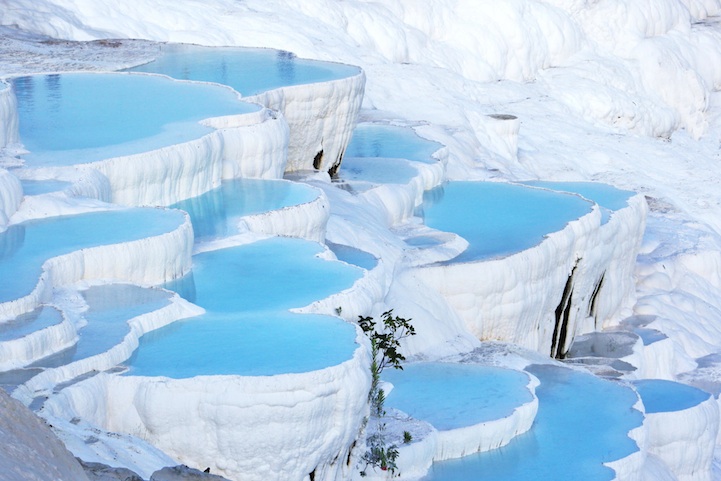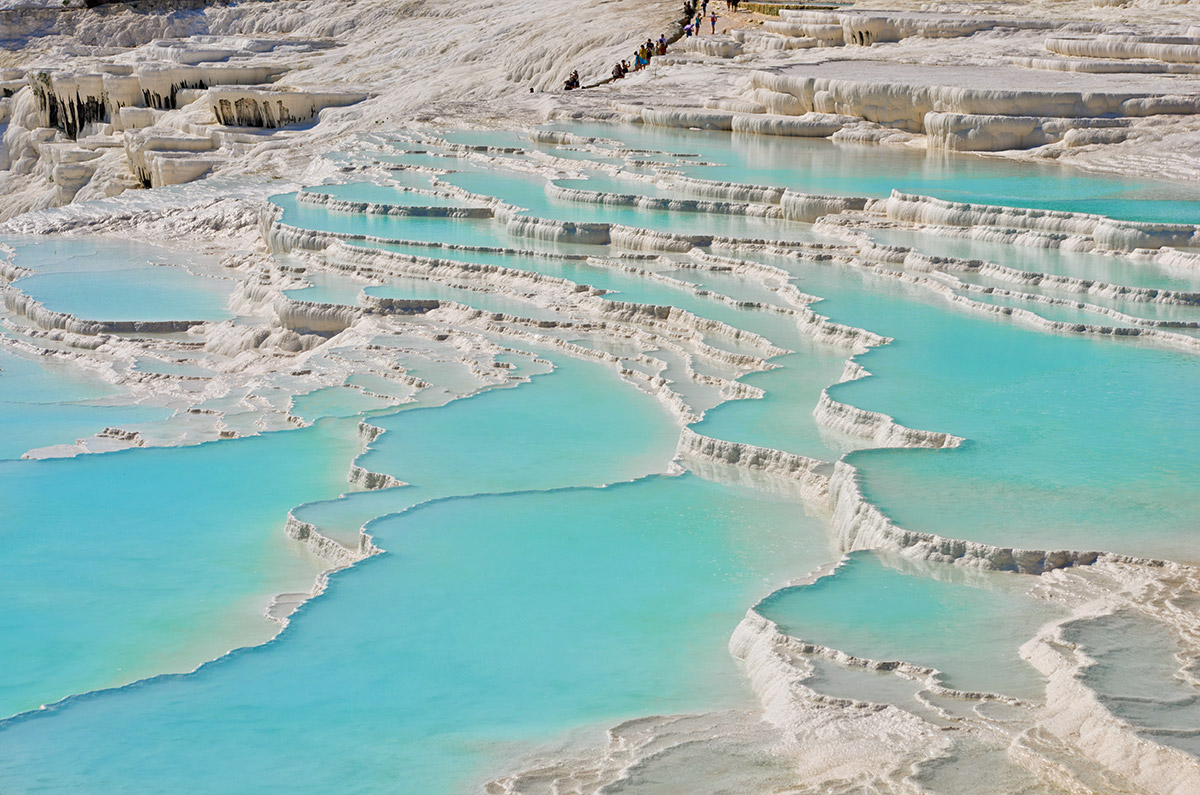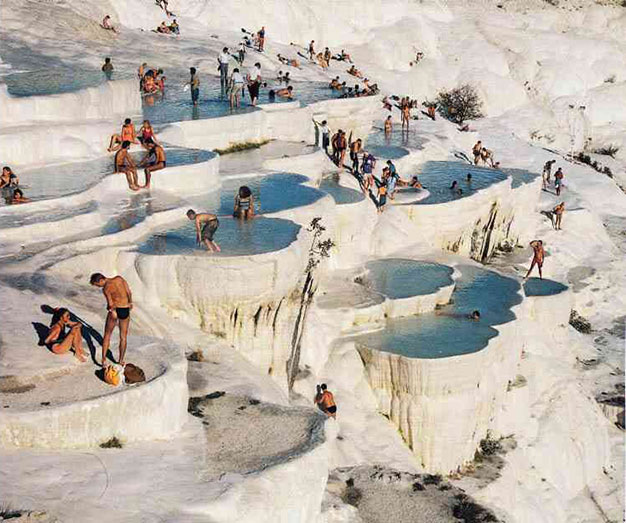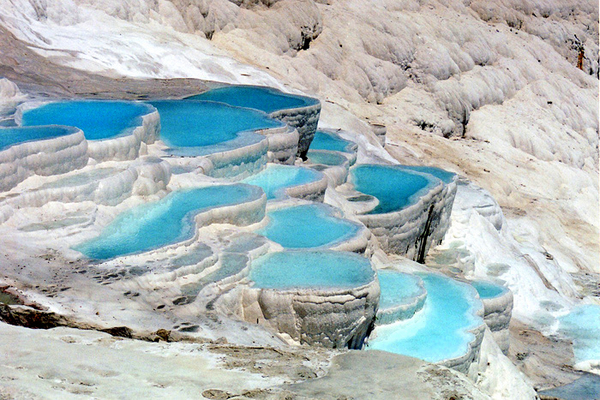Located in the western part of Turkey is Pamukkale, a town which is known for the mineral-rich thermal waters flowing down white travertine terraces on a nearby hillside. Travelers who would like to explore a stunning showcase of natural hot water pools should visit Pamukkale in Denizli’s Province, Turkey. Pamukkale is a Turkish term for “cotton castle” which truly describes the “fluffiness” of this tourist destination.
The captivating Pamukkale is situated 18 kms. of Denizli and is Turkey’s main mineral-bath spa attributing to its enchanting natural beauty, a hot calcium-laden waters spring from inside the earth, beautifully cascading over a cliff. It has been a natural spa since the Romans built the spa city of Hierapolis. Pamukkale Hot Springs can be visited by tourists all year long but during the winter season, it is more spectacular to behold, the time when the natural pools of hot water form and guests can indulge in long, soothing warm bath.
Reaching Pamukkale is made possible by boarding a plane or a bus going to the city of Denizli – Cardak Airport. From there, you can take a bus to Pamukkale which is available once you get there. Remember to bring a bag for your shoes along with some slippers for visiting the travertines. Also do not forget your bathing suit. Accommodation will not be a problem at all, as travelers will find that the place has a highly developed tourism.
This petrified and enchanting waterfalls/travertine is a UNESCO World Heritage site. The admission cost is 25 TL (as of June 2014). This cost includes admission to nearby Roman city of Hierapolis as well. The lower parts of the travertine cascades are said to offer better views than the top.
Day tours are priced for around 45 Lira which includes an English-speaking tour guide, entrance fee to Hierapolis and the travertine’s and a fine, buffet lunch. Different companies are deemed to offer same tour packages. Such tours leave from the Pamukkale bus company office on the main street opposite the travertines, and the Koray Hotel. There may be tours starting from other places around the town, tool. For those who prefer not to visit the travertines under the blazing hot sun, they can also enjoy night tours as well, which start from small guesthouses.
Other than the hot springs, the great 12,000-seater Roman amphitheater of Hierapolis should not be missed, and lies just above the travertines.
Tourists can also swim with roman ruins in a large natural swimming pool located just past the topmost travertines. Another less famous site, but one that holds a considerable importance biblically is Laodikya, just 10 km from Pamukkale on the Denizli road. It’s mentioned in the Bible as one of the 7 Churches of the Revelations and even though it hasn’t been reconstructed as much as the more famous sites like Epheseus, is a great place to experience the Roman history without the crowds. A calming way to spend a day looking at ruins but also the beautiful scenery.




